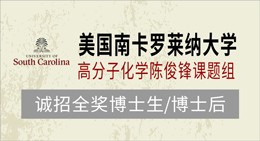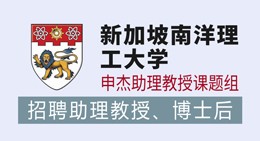当前位置:
X-MOL 学术
›
Clin. Cancer Res.
›
论文详情
Our official English website, www.x-mol.net, welcomes your feedback! (Note: you will need to create a separate account there.)
Platinum-based chemotherapy induces opposing effects on immunotherapy response-related spatial and stromal biomarkers in the bladder cancer microenvironment
Clinical Cancer Research ( IF 10.0 ) Pub Date : 2024-07-24 , DOI: 10.1158/1078-0432.ccr-24-0724 Maksim A. Chelushkin 1 , Jeroen van Dorp 1 , Sandra van Wilpe 2 , Iris M. Seignette 3 , Jan-Jaap J. Mellema 1 , Maartje Alkemade 4 , Alberto Gil-Jimenez 1 , Dennis Peters 1 , Wim Brugman 5 , Chantal F. Stockem 1 , Erik Hooijberg 6 , Annegien Broeks 3 , Bas W.G. van Rhijn 1 , Laura S. Mertens 1 , Antoine G. Van der Heijden 7 , Niven Mehra 2 , Maurits L. van Montfoort 1 , Lodewyk F.A. Wessels 8 , Daniel J. Vis 9 , Michiel S. Van der Heijden 1
Clinical Cancer Research ( IF 10.0 ) Pub Date : 2024-07-24 , DOI: 10.1158/1078-0432.ccr-24-0724 Maksim A. Chelushkin 1 , Jeroen van Dorp 1 , Sandra van Wilpe 2 , Iris M. Seignette 3 , Jan-Jaap J. Mellema 1 , Maartje Alkemade 4 , Alberto Gil-Jimenez 1 , Dennis Peters 1 , Wim Brugman 5 , Chantal F. Stockem 1 , Erik Hooijberg 6 , Annegien Broeks 3 , Bas W.G. van Rhijn 1 , Laura S. Mertens 1 , Antoine G. Van der Heijden 7 , Niven Mehra 2 , Maurits L. van Montfoort 1 , Lodewyk F.A. Wessels 8 , Daniel J. Vis 9 , Michiel S. Van der Heijden 1
Affiliation
Purpose: Platinum-based chemotherapy and immune checkpoint inhibitors are key components of systemic treatment for muscle-invasive and advanced urothelial cancer. The ideal integration of these two treatment modalities remains unclear as clinical trials have led to inconsistent results. Modulation of the tumor-immune microenvironment by chemotherapy is poorly characterized. We aimed to investigate this modulation, focusing on potential clinical implications for immune checkpoint inhibitor response. Experimental Design: We assessed immune cell densities, spatial relations, and tumor/stromal components from 116 urothelial bladder cancer patients (paired data for 95 patients), before and after platinum-based chemotherapy. Results: Several published biomarkers for immunotherapy response changed upon chemotherapy-treatment. The intratumoral CD8+ T cell percentage increased after treatment and was associated with increased TNFα-via-NFκB signaling. The percentage of PD-L1+ immune cells was higher after chemotherapy. An increase in chemo-induced changes that potentially inhibit an anti-tumor immune response was also observed, including increased fibroblast-based TGF-β signaling and distances from immune cells to the nearest cancer cell. The latter two parameters correlated significantly in post-treatment samples, suggesting that TGF-β signaling in fibroblasts may play a role in spatially separating immune cells from cancer cells. We examined specific chemotherapy regimens and found that MVAC was associated with an increase in the macrophage cell percentage. Gemcitabine-containing chemotherapy was associated with upregulation of fibroblast TGF-β signaling. Conclusions: The opposing effects of platinum-based chemotherapy on the immune cell composition and stromal context of the tumor-immune microenvironment may explain the inconsistent results of clinical trials investigating chemotherapy and immune checkpoint inhibitor combinations in bladder cancer.
中文翻译:

铂类化疗对膀胱癌微环境中免疫治疗反应相关的空间和基质生物标志物产生相反的作用
目的:铂类化疗和免疫检查点抑制剂是肌肉侵袭性和晚期尿路上皮癌全身治疗的关键组成部分。这两种治疗方式的理想整合仍不清楚,因为临床试验导致结果不一致。化疗对肿瘤免疫微环境的调节尚不清楚。我们的目的是研究这种调节,重点关注免疫检查点抑制剂反应的潜在临床影响。实验设计:我们评估了 116 名膀胱尿路上皮癌患者(95 名患者的配对数据)在铂类化疗前后的免疫细胞密度、空间关系和肿瘤/基质成分。结果:一些已发表的免疫治疗反应生物标志物在化疗后发生了变化。治疗后肿瘤内 CD8+ T 细胞百分比增加,并与 TNFα-via-NFκB 信号传导增加相关。化疗后PD-L1+免疫细胞的百分比更高。还观察到化疗引起的变化增加,可能抑制抗肿瘤免疫反应,包括基于成纤维细胞的 TGF-β 信号传导增加以及免疫细胞到最近癌细胞的距离增加。后两个参数在治疗后样本中显着相关,表明成纤维细胞中的 TGF-β 信号传导可能在免疫细胞与癌细胞的空间分离中发挥作用。我们检查了特定的化疗方案,发现 MVAC 与巨噬细胞百分比的增加有关。含吉西他滨的化疗与成纤维细胞 TGF-β 信号传导的上调有关。 结论:铂类化疗对肿瘤免疫微环境的免疫细胞组成和基质环境的相反影响可能解释了研究化疗和免疫检查点抑制剂组合治疗膀胱癌的临床试验结果不一致的原因。
更新日期:2024-07-24
中文翻译:

铂类化疗对膀胱癌微环境中免疫治疗反应相关的空间和基质生物标志物产生相反的作用
目的:铂类化疗和免疫检查点抑制剂是肌肉侵袭性和晚期尿路上皮癌全身治疗的关键组成部分。这两种治疗方式的理想整合仍不清楚,因为临床试验导致结果不一致。化疗对肿瘤免疫微环境的调节尚不清楚。我们的目的是研究这种调节,重点关注免疫检查点抑制剂反应的潜在临床影响。实验设计:我们评估了 116 名膀胱尿路上皮癌患者(95 名患者的配对数据)在铂类化疗前后的免疫细胞密度、空间关系和肿瘤/基质成分。结果:一些已发表的免疫治疗反应生物标志物在化疗后发生了变化。治疗后肿瘤内 CD8+ T 细胞百分比增加,并与 TNFα-via-NFκB 信号传导增加相关。化疗后PD-L1+免疫细胞的百分比更高。还观察到化疗引起的变化增加,可能抑制抗肿瘤免疫反应,包括基于成纤维细胞的 TGF-β 信号传导增加以及免疫细胞到最近癌细胞的距离增加。后两个参数在治疗后样本中显着相关,表明成纤维细胞中的 TGF-β 信号传导可能在免疫细胞与癌细胞的空间分离中发挥作用。我们检查了特定的化疗方案,发现 MVAC 与巨噬细胞百分比的增加有关。含吉西他滨的化疗与成纤维细胞 TGF-β 信号传导的上调有关。 结论:铂类化疗对肿瘤免疫微环境的免疫细胞组成和基质环境的相反影响可能解释了研究化疗和免疫检查点抑制剂组合治疗膀胱癌的临床试验结果不一致的原因。












































 京公网安备 11010802027423号
京公网安备 11010802027423号